Canadian Champ of Clipper RTW Race
Published on October 22nd, 2014
Vancouver, BC (October 22, 2014) – Eric Holden, a meteorologist with Canada’s Olympic sailing team, got to stoke two of his passions while crisscrossing the globe. The 34-year-old skipper is back home for the first time in two years after winning the gruelling Clipper Round the World yacht race in July, a 64,000-kilometre trek that took almost 11 months to complete.
“One of the big perks of this race was experiencing the weather in those different places,” Holden said Wednesday. “The southern ocean from South Africa to Australia in particular is the Holy Grail, the Mt. Everest of sailing. You get the biggest winds and seas. There’s not that many races that go there. That was a big reward for me. “We had three storms that hit hurricane-force winds and the seas were quite monstrous, it was a very impressive show of nature.”
What might be even more remarkable is that Holden, the first Canadian to win the race, and the 11 other professional skippers who took part sailed with crews made up entirely of amateurs. The neophytes were vetted and received about four weeks of training in the English Channel before being divided up and assigned to a ship. Holden’s crew ranged in age from 21 to 74, including five other Canadians.
“For me that was probably the most rewarding part of the whole experience, seeing the development from pretty much zero sailing knowledge to being safe, competent sailors that I have full respect for,” said Holden. “It may not be the race for every professional sailor because you really do have to have that patience to work with people who really don’t know what’s going on and might be a little bit intimidated initially.”
He said the success of his yacht, the Henri Lloyd, over the 16 individual races in the event that has a Formula 1-style scoring system was due in part due a tone he set early. “We were told before the race by how much the crew often takes on the personality of the skipper,” said the soft-spoken Holden. “You weren’t quite sure how much to believe it, but it was really amazing how that happened to each team. “For our team, patience and remaining calm were very important. It’s kind of the way I acted and my crew would follow.”
While the Henri Lloyd had an insurmountable lead with one race to go, there were many tense moments along the way. Whales got too close for comfort, a water-making machine broke down, and at one point a crew member was in so much pain that morphine had to be administered when the boat was more than 1,500 kilometres from shore.
Then there were the suspected pirates.
“In Asia we had a bit of scare with a motorboat that was acting very suspiciously that kind of looked like it could have tyrannical intentions,” said Holden, who added nothing came of the encounter. “People back home sometimes worry more than you do on the water because they don’t necessarily have the full information. They hear stories and rumours that go around on social media.”
Holden said a turning point in the race came on the journey from China to San Francisco. Not all members of the crew take part in the entire voyage, only nine were true “round the worlders”, and just 13 of the usual 20 were on board during that period.
“We were quite shorthanded and were really struggling, making some mistakes and causing more work,” said Holden. “We took a bit of a timeout, got people some rest and reassessed the situation and how we were going to work with this limited number of crew. We came up with a solution that got us back into the overall lead of the race by the time we hit San Francisco. “It felt like the wheels could be coming off, but we rose to the challenge and did great.”
The skipper and his crew would spend as much four weeks on the water at a time, and were so dialled in that the accomplishment only started to sink in when they sailed up the River Thames in London. “We went under the Tower Bridge with thousands of people waving at us and waving Canadian flags,” he said. “It was pretty overwhelming and a special moment.”
The Clipper Round the World yacht race was started by Sir Robin Knox-Johnston in the 1990s and was on Holden’s radar for a while before he decided to make the commitment, along with the rest of his crew.
“Really they’re all doing it for different reasons, but when it comes down to it they’re looking to do something new and exciting,” said Holden. “Sir Robin has a quote saying ‘This may be the best thing you’ve done in your life so far.’ So he’s hoping that this will encourage people to continue pursuing their dreams and their goals. “It really is a life-changing event for the people on board.”
Holden grew up on a boat moored in Vancouver’s False Creek and was sailing competitively by the age of eight. He fell short of representing Canada at the 2004 Olympics, but monitored the weather conditions for the country’s sailing outfit at the 2012 Games.
He’s back home to reconnect with family after doing some freelance work following the race, but is also intent on helping to raise sailing’s profile in this country, including a visit to Sail Canada’s annual general meeting in Victoria later this week. “During the race I was so focused, I wasn’t really able to think about the next step,” said Holden, who will work with Sail Canada ahead of the Rio Olympics in 2016. “Now that I’m done and taken a recovery break I’m ready to get back out there and work towards the next sailing goal.”
Holden would like to race around the world again, either on a two-person boat or with a fully professional crew, but added he will leave the Clipper Round the World yacht race to the next group of skippers, maybe even one who’s Canadian. “I’ve done this challenge,” he said. “Winning it kind of ticked that box and now I’m looking for the next adventure.”


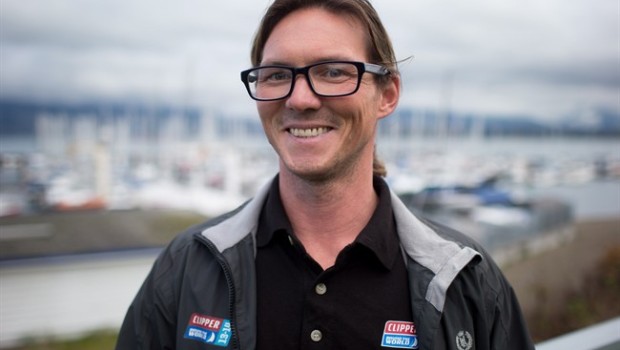


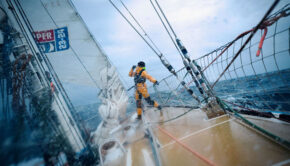
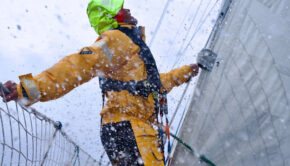
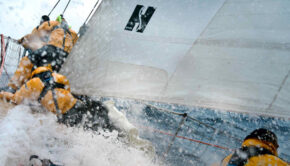
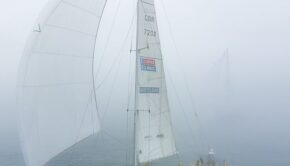
 We’ll keep your information safe.
We’ll keep your information safe.